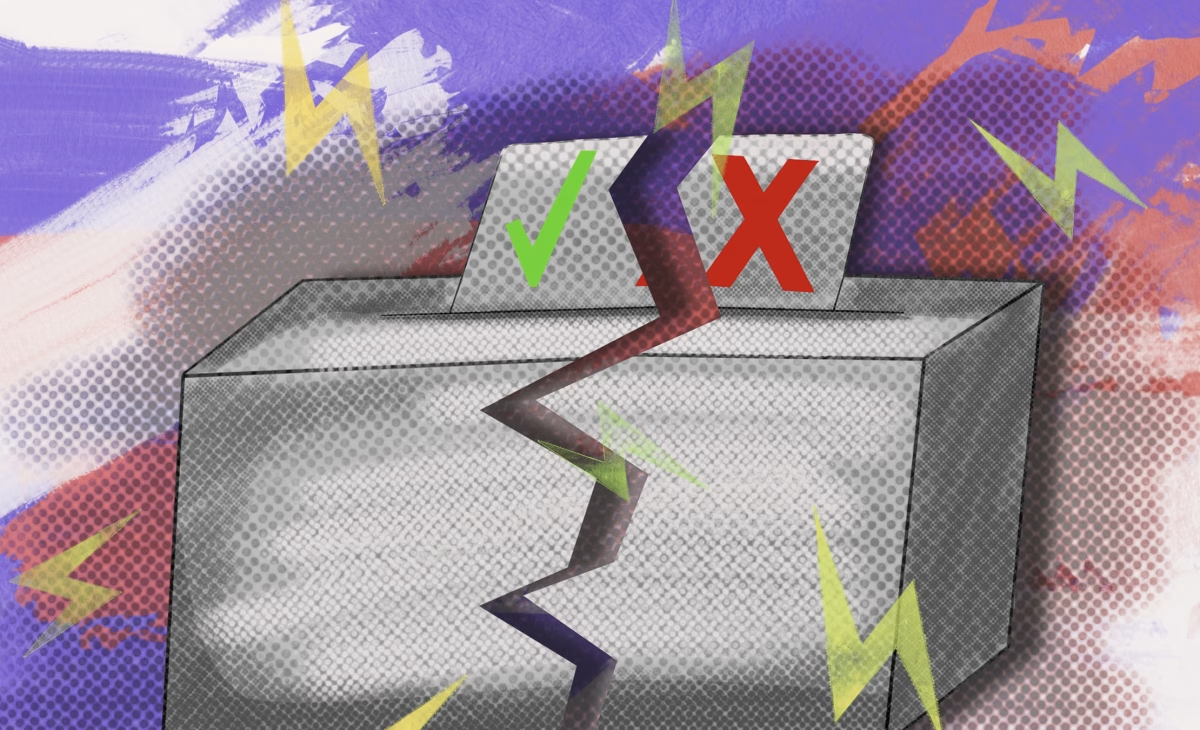Since August, I’ve been working as a “Voter Engagement Specialist” in the Office of Student Involvement at DePaul. I’ve helped students with all levels of civic education, reaching from coast to coast. They all seek my help for the same reason — to make their voices heard. Almost all the students I’ve encountered are voting for the first time.
The overwhelming sentiment over these months has been: I wish this process was easier.
I didn’t expect to have to learn the minutiae of each state’s voter registration law; However, this has become part of my job. While a federalist (leaving specifics to the states) mode of election jurisdiction is one of the most important safeguards to our free and fair election, as it prevents a rogue executive from unilateral control of elections, it also allows states the ability to put barriers between rightful voters and the ballot box.
A handful of states require a notary public to witness a voter signing an absentee ballot application or the actual absentee ballot. Not only does this present a voter with an undue burden — having to find and schedule time to meet with a notary, but it also presents voters with a de facto poll tax. Notary services are not free.
Seven states do not allow online voter registration. This further complicates a process that should be attainable to all people. Everyone, regardless of educational attainment, has a constitutional right to vote.
I’ve seen countless students who are so stressed out by the looming threat of accidentally committing voter fraud, or simply registering incorrectly, that they are dissuaded from registering at all. This shouldn’t be the norm, it should be so simple that anyone can do it. Or better yet, it should be automatic.
Illinois, one of the more progressive states in terms of voter registration requirements, allows 16- and 17-year-olds to preregister to vote when getting a driver’s license, so they are prepared to cast a ballot at 18. I’m from Illinois and remember registering to vote when I turned 17 and being able to cast my ballot in a primary election — as Illinois law only requires you to be 18 by the general election.
States create restrictive voter registration processes, or voter ID laws, to prevent what is described as “election fraud.” However, fraud in U.S. elections is close to unheard of —occurrences are between 0.0003% and 0.0025%.
A Washington Post study found there were 31 credible cases of voter fraud between 2004 and 2014 — out of more than one billion ballots cast. The lofty threat of “voter fraud” is plainly not an issue, and the benefits of these draconian restrictions are far outweighed by the suppression they cause to entitled voters.
All this being said, the opportunity to put democracy back into the hands of my peers has been one of the most awesome opportunities I’ve had at DePaul. I was once told by a previous boss that “democracy is not a spectator sport,” and it’s always stuck with me. The ability to democratically elect our leaders, from school boards to representatives and the leader of the free world, cannot be squandered.
For national races, it might feel pointless but if everyone had that sentiment nothing would get done. Your vote is your voice; don’t let anyone take it away from you. If you need help casting your ballot — Vote DePaul is here to help you every step of the way.
Support Student Journalism!
The DePaulia is DePaul University’s award-winning, editorially independent student newspaper. Since 1923, student journalists have produced high-quality, on-the-ground reporting that informs our campus and city.
We rely on reader support to keep doing what we do. Donations are tax deductible through DePaul's giving page.

